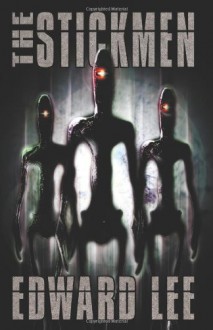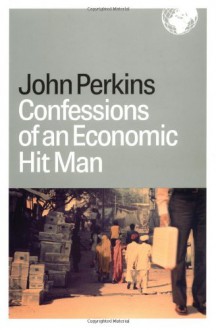
**NOTE: All quotations are taken from an uncorrected digital galley and are therefore provisional. Quotes will be corrected when the book is released.**
When I first saw the book, I was definitely intrigued. Conspiracy theories are an interesting subject with a lot of very elegant theoretical constructs behind them. Despite the "other dangerous ideas" in the tagline, after reading the blurb, I expected a variant on the pop psychology and sociology books that I tend to devour like candy. Unfortunately, I think the title and blurb are somewhat misleading. I noticed in passing as I started this review that the ratings seem a bit low; I suspect that this may be due to a mismatch between readers and subject.
Or maybe it's all part of some grand conspiracy or other.
Personally, I think the title gets it wrong. I'd say that the book is actually a collection of very loosely-related essays about various human biases and the author's beliefs on how government should take these factors into account. While I found it interesting, I think I was a bit of a mismatch for this book: I expected an entertaining retelling of various experiments dealing with human ideation of conspiracy, perhaps with some ties in with the author's experiences with the law and politics. Instead, I got Mr. Sunstein giving me his opinion on a wide variety of topics, from the Bill of Rights to the costs and benefits of cost-benefit analysis to animal rights to religion and sexism to marriage to climate change to a rosy-tinted description of "New Progressivism." It's still an interesting book, but if you pick it up, keep in mind that the conspiracy business peters out at about the 20% mark and I'm not sure which of the other ideas were supposed to be "dangerous", so make sure you're not in it for the paranoia.
For me, the style was a bad fit. When I dig into nonfiction, I don't want to read about someone's opinions; I want the facts. For me, this means that authors shouldn't state psychological theories as fact; they should explain one or more relevant studies and let the reader draw his own conclusions. Maybe I'm overly suspicious and sceptical, but I like to consume grandiose claims with just a little factual flavouring. Instead, in Conspiracy Theories, the author tends to state various theories as fact and backs up the claim with a citation. It's up to you to hunt down the hundreds of papers and determine whether or not they support the sweeping statements. Maybe I'm just lazy, but I tend to expect my nonfiction to give me all the necessary information rather than requiring either blind belief or heavy homework.
The book itself tries to remain quite measured in tone, but there are a few breaks in objectivity that may be irritating to readers who do not share the author's political beliefs. My favourite bit actually came from the intro to the conspiracy theory section. Mr Sunstein complains that some of his beliefs
"Struck an especially raw nerve--and actually endangered my chances at senate confirmation. As I learned, the negative attention was partly a product of the desire of many people to attack anyone associated with the Obama administration."
Given the context, I found this little bit of paranoia hilarious.
As for the conspiracies, I actually think this section encapsulated both the best and worst aspects of the books. I really liked the discussion of how conspiracies provide "an underlying intentional order" and his descriptions of "crippled epistemologies," conspiracy cascades, reputational cascades, availability, group polarization, and "pluralistic ignorance."[1] He also claims that conspiracy theorists tend to simultaneously believe in multiple contradictory conspiracies, but it's backed up by yet another reference to a study that I'd have to dig up before ascertaining how well it supports the claim.
The most problematic aspect of this section was his discussion of "cognitive infiltration," a term and topic destined to give even the most credulous person a bit of paranoia. The term, coined by the author, includes a variant in which:
"Government agents and their allies might enter foreign chat rooms, online social networks, or even real-space groups and attempt to undermine percolating conspiracy theories by raising doubts about their factual premises, causal logic, or implications for action, political or otherwise [...] Government officials would participate anonymously or even with false identities."
I am disgusted; I consider it an absolute betrayal of our the tenets of our government. He does note that despite its "higher returns", the "ethical concerns" mean that it should be used only in "unusual circumstances," but that's the slip'n'slide of slippery slopes. Not only is "cognitive infiltration" creepy; even just hearing him coolly lay out the pros and cons of using such sockpuppets validates and confirms the very conspiracies that were supposed to be discrediting.
The book leaves the quagmire of conspiracy at around 20% to talk about FDR's proposal of a second Bill of Rights, then a segue into cost-benefit analysis. Building on Kahneman's "thinking fast and slow," he argues that "misfearing" leads us to high inaccuracy in predicting happiness after tragedy--although the claims depend on an accurate quantification of happiness. He then took a total right-turn into his opinions on how to legislate animal rights, marriage, climate change, and the tension between freedom of religion and gender equality. I think the climate change chapter was probably my favourite: Sunstein lays out the various culpability- and distributory- models, and the problems with each. Although it was once again a very political- and opinion-heavy piece, I greatly enjoyed his exploration of the various rationales and their pitfalls.
As the book progressed, it drifted more and more into a political perspective. Sunstein provides a rosy-tinted portrait of what he terms "New Progressivism." Starting with the claim that humans are terrible at predicting long-range effects of interference, he defines New Progressivism as interested primarily in outcomes. I agree with many of its tenets, from emphasis on education and empowerment to the harnessing of social norms. He brings up the old "broken windows theory," which, while attractive, is still a theory rather than the fact that he asserts. It all felt very facile and not necessarily well-thought-out, something it shares with the rest of U.S. policy. For example, all the proposed policies have potentially heavy costs, which might imply cutting budgets elsewhere.[2] The last two sections define two useful techniques for avoiding conflict: minimalism, in which one tries to put off big decisions or make them as narrow as possible, and trimming, a policy that attempts to play peacemaker by either "compromising" or "preserving." The book then ends abruptly without any form of summary or attempt to tie the disparate threads into a unified whole.
I think the content of the book was quite interesting; the most problematic aspect, for me, was simply a mismatch of preconceptions: I was looking for a book of facts, not a series of proposals and opinions. Perhaps the most troubling aspect was the discussion of "cognitive infiltration;" no matter how much Mr. Sunstein protests, I found the idea both revolting and disturbing, and I think it has probably had the amusing effect of making me more susceptible to conspiracy theories against the government. All the same, I really enjoyed some sections, especially the part about climate change. Even though it wasn't what I expected, I thought it made for an interesting read; I certainly learned a lot about how policymakers think.
~~I received this ebook through NetGalley from the publisher, Simon&Schuster, in exchange for my honest review.~~
[1] If a majority believes A, but everyone fears that everyone else believes B, no one will speak out for B. ↩
[2] No matter how fine the theory, such policies sometimes leave the countries with incompetently-created, unwieldy, inadequate, and poorly-thought-out systems that actually exacerbate the problems they were intended to solve. *cough* *healthcare*↩
 Event by David Lynn Golemon
Event by David Lynn Golemon
 Log in with Facebook
Log in with Facebook 









